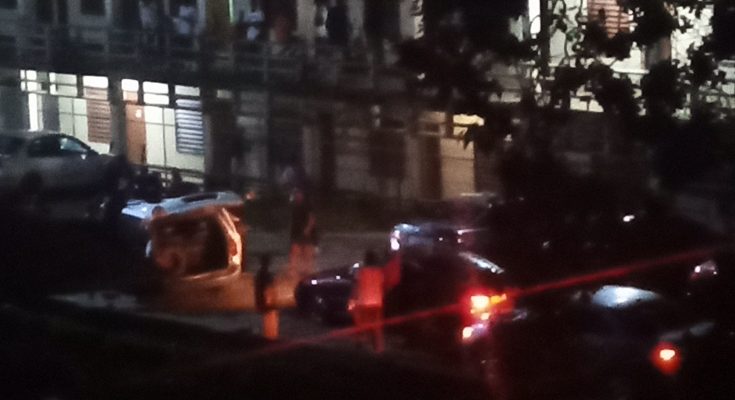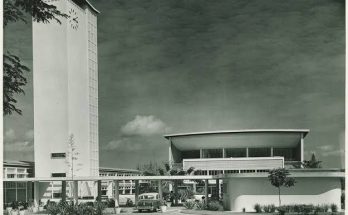It was 2019—and the students’ foreheads were creased with worry. They still do not have a voice and attempts to stimulate political participation had been tortoise-paced. The level of political apathy on the part of the students was a serious problem. On the other end, the university management prepares a shocker for the students. It has subtly been making preparations to reinstate the Students’ Union. When it eventually did through an official announcement, the students went into university-wide jubilation, euphoric that their long-lost voice had finally been recovered. If they had known that the subsequent leaders would operate in utter fear of the management, the jubilation would have died down the very time it started. After all, what is the use of a voice that cannot speak?
This is no news: The Students’ Union is in the pockets of the management. Thus, student-leaders have no other choice than to administrate carefully in a manner that will not jeopardize the university’s interest. Not that they cannot drive home their demands when there is an unavoidable face-off with the management, it is that they cannot also not bank on the students for their overwhelming support considering the case with a former SU President. As a matter of fact, what is now characterizing the Union is attempts to push the leaders to the forefront, and then dance back immediately. But still, the Kunle Adepeju building must have occupants. Now that the coast has been declared clear for students who are willing to hold political offices to contest in the SU elections, a question needs to be asked: “of what gain is representing the students’ interest when you cannot fight on their demands?” As this question is being pondered upon, we should also reflect on where we have entirely missed it.
Despite fully understanding that there are limits to their so-called intellectual “gra-gra,” these would-be SU executives have come to us again—in our rooms, at our departments, at our worship places, at our halls. They want us to support them and their ideologies. They want us to assure them of our unflinching loyalty. They tell us that they are ready to go on the extra miles to support the students. But we know these are lies. We know these are sweet political nothings aimed at securing our votes. No student-leaders, at least starting from the ones that emerged after the ban, will place the students’ interest above their academic interest or studentship. They know. We know too. Political vibrancy among the students is dead. While many of us are unperturbed, this is a burning issue we must address if we still want to have a functional body of students.
As these aspirants have begun running about selling their ideologies, some of them are still missing out on a very important method. They have not sat down and reflected on their manifestoes, or even have definable/achievable plans on how to achieve them. Most of them just join the race with no clear purpose, like a blind man scuttering away in the face of chaos; so, when they win, to put in place what has been promised becomes a problem. They then end up as dormant occupants in the Kunle Adepeju Building.
Dear readers, as we have established in our previous editorial, popularity is not synonymous with efficiency. Before you throw your weight behind these aspirants because they have come to you, you should engage in their dialogues. And, be wary when an aspirant says “God will do it” when you question some of their plans. Of course, with God lies what can and cannot be done, but an aspirant employing this phrase as a defense is a sinister move. By interrogating their plans, you will get to know those who will be effective and those who are just there to fill in the vacuums. Since the Union is dying a quick death, aren’t the executives filling the vacuum? The resuscitating injection the Union needs of this moment is executives who are ready to restore its past glory.
The mistake most of these student-leaders made on assumption to offices is the misconception that there is only one way to convince (or sometimes force) the management to genuflect to the students. So, there will ignore other calculated means. It has always been said that protests or the violent shutting of the school are not the only way to, as we say, win the authority. The reason student-leaders fail to effectively promote the students’ demands is because they believe that when the university does not kowtow, then what quickly follows is a series of protests. The problem here is that protests have not always forced the management to look into the students’ demands. A scenario that best interprets this is the “No ID Card, No Exam protest.” Till this moment, the students pay for ID cards yearly but have only one—that is non-renewable. And students who received their ID cards in 2017 have them expired in 2020. There is even no word from the management to address this.
The university setting is a place where students are taught to be future leaders. This cannot however be achieved when the management places a construct on what the students can agitate for. As a matter of fact, some of us universities “kill” political participation in the young people as tertiary institutions become autocratic and fraudulent intellectual communities.
That said, those who are keen on representing the wishes of the students should understand that when they emerge victoriously, it must be Unionism with responsibility. They should also understand that they should not be pushed to their downfall, particularly from a former student who always has damning words to say on every UI Vice-Chancellors and SU Presidents. They should also be wary about evil political machinations who are ready to use them to disrupt the sanity of the university community. They should also beware of themselves less they lose students’ support in their failure to implement their utopic policies.
Dear readers, at this moment, you are the change-makers. With the accreditation of the voters on-going, you have been empowered with a right—to select the best leaders. Although the accreditation process has been epileptic which questions the perfectibility and in fact credibility of the e-voting as regards the election, it is hoped that the Students’ Union Electoral Commission would conduct a seamless election. As students who have been given the power to change the narrative, kindly make sure that you don’t vote for candidates because of their religious affiliations, or for the fact that they are beautiful ladies and handsome guys. Always take your time to question every proposition made by these aspirants. When they fail to convince you, tell them “Do not come to us again if you don’t have a definable and achievable policy!”
As the elections close down, the students should choose their leaders wisely. We would advise them to make time and attend the Press Night where the Union of Campus Journalists, University of Ibadan (UCJ UI) will question the proposed policies and programs of each aspirant. By so doing, the students would have a better understanding of each aspirant and make the best choice when they cast their votes.
Thanks for reading and have a wonderful week ahead.
If you know of any issues that you want UCJ UI to look into, or any anonymous write-ups, kindly send a mail to ucjunibadan@gmail.com or message wa.me/+2349061949587.




